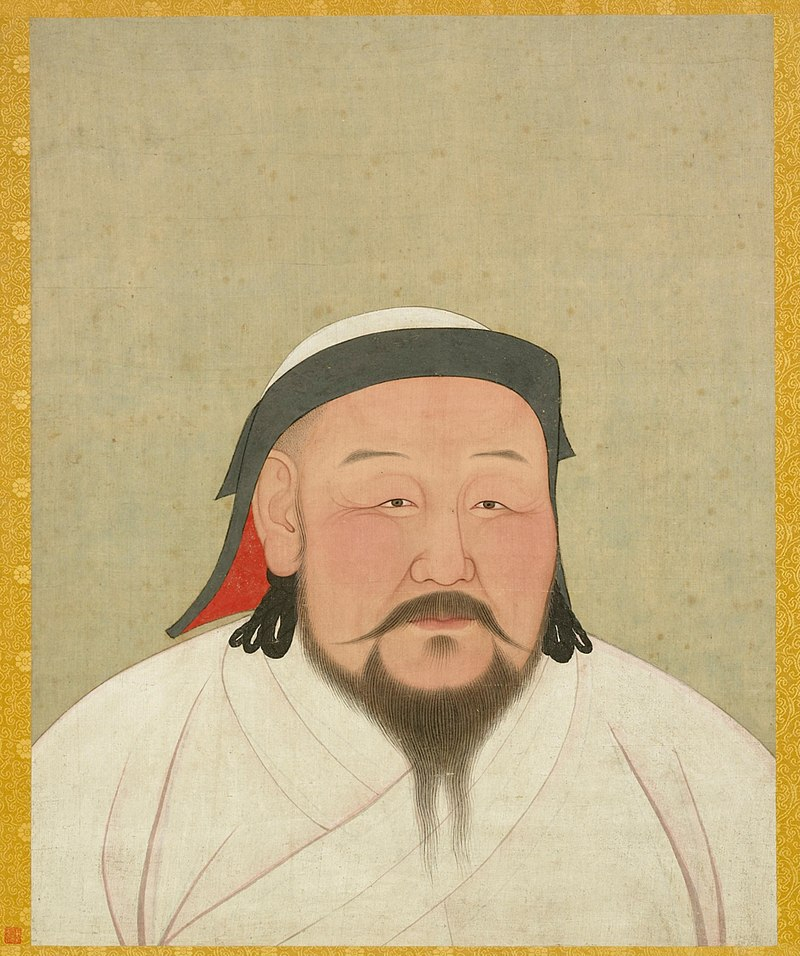The Yuan Dynasty

From 1271 until 1368, the Yuan Dynasty, a Mongol imperial dynasty in China, served as the Mongol Empire's successor state when it was split up. Kublai Khan (Emperor Shizu), the head of the Borjigin clan, established the Yuan Dynasty. In 1264, Kublai Khan relocated the Mongol headquarters from the Karakorum to Khanbaliq, and in 1266, he established a new settlement close to the old Jurchen capital Zhongdu, which is today Beijing.
Kublai Khan encouraged advancement in business, science, and culture while in power. Regarding commerce, he helped Silk Road traders by safeguarding the nation's mail system, developing infrastructure, lending money to caravans, and encouraging the use of paper money.
Despite the Yuan Dynasty's brief lifespan, it was a crucial time in art history. The extensive use of blue-and-white ornamental porcelain, improvements in Chinese painting style during this time, as well as advancements in the lacquer industry all had a significant impact on the later Ming and Qing dynasties' artistic output. Through both land and sea channels, the Yuan dynasty fostered new and restored ancient commercial connections with the outside world. Along with the influx of foreign commodities, creative businesses grew as a result of the new ideas and technology that inundated the coastal towns. Cobalt oxide is used to paint ceramics before they are covered in a transparent glaze that is also referred to as blue-white porcelain. In Jingdezhen, southern China, they started to be made in large quantities for local and international markets, particularly the Near East. Later, the Yuan court expanded the legal controls over this manufacturing at Jingdezhen, which eventually emerged as China's most significant porcelain production hub.
The Yuan Dynasty saw significant advancements in calligraphy, poetry, and theater, which produced many of the well-known authors and artists of today. The effort of combining poetry, painting, and calligraphy into a sort of cohesive system when thinking about ancient Chinese art is one of the significant aesthetic and cultural developments of the Yuan Dynasty.
Regarding religion, Buddhism, Islam, Christianity, and Manichaeism were among the several religions that spread throughout the Yuan period. Muslims became more numerous in China when the Yuan Dynasty was established. The Yuan Dynasty did not, however, adopt Islam as the Western khanates did. Kublai Khan advocated the promotion of Buddhism, particularly the Tibetan schools of thought. Tibetan Buddhism as a consequence became the orthodox state religion. In order to manage Buddhist monks around the empire, Khanbaliq formed the Department of Buddhism and Tibet, the highest level ministry and government institution.
War, starvation, and public outrage characterized the Yuan Dynasty's closing years. Over time, Kublai Khan's successors in Asia lost all control over further Mongol territories. They gradually lost power in China as well. The latter Yuan rulers' short reigns were marked by murderous conspiracies. Natural catastrophes like droughts and floods began to affect rural residents in the late 1340s. Famine ensued, and poor government measures caused a decline in public support. After many wars that massacred each other, the year 1368 marked the fall of the Yuan Dynasty.
In short, the Yuan Dynasty:
- was a Mongol imperial dynasty in China that existed from 1271 until 1368 with the first Emperor being Kublai Khan.
- regarding trade, Kublai Khan promoted economic and commercial development through the Silk Road.
- was an important period with improvements in the Chinese painting style, as well as advances in lacquer and ceramic production.
- regarding religion, witness widespread religions such as Buddhism, Islam, Christianity, and Manichaeism.
- 1368 marked the fall of the Yuan Dynasty after a long period of war, starvation, and public outrage.










